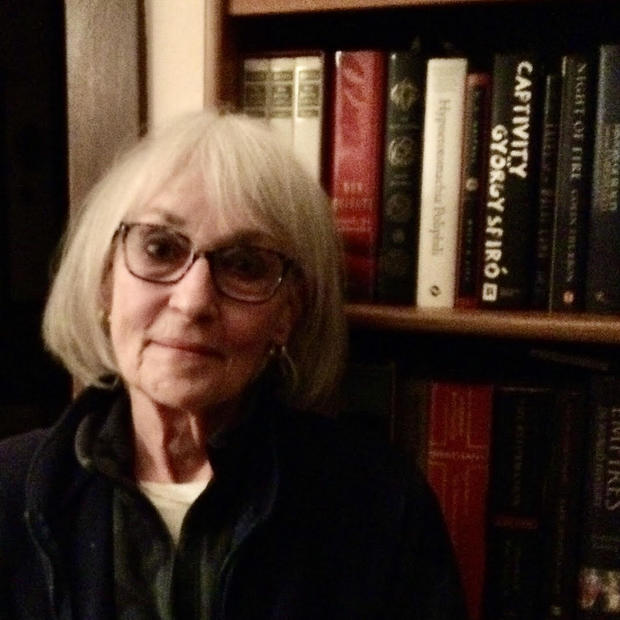Seattle native Annie Leonard was back in her hometown last week on a book tour to promote The Story of Stuff. “It’s doing well,” she told a packed audience at Town Hall, then reined in her pride with a mischievous smile: “I have to keep reminding myself it’s a book about garbage!” Actually, it’s a book about the materials system that lies behind the things we purchase, a system generally far from our minds when we’re shopping at Best Buy.
To Leonard a cell phone is not just a convenient electronic gadget with a price. Looking at a cell phone, she also sees “Congolese kids dropping out of school to mine coltan, oil wells in Iraq, plastics made in China, assembly maybe done by somebody in a Mexican maquiladora” and an eventual addition to the mountains of hazardous e-waste exported to India. “I can't not think about these things!” exclaimed Leonard. “But if you're going to have a neurosis, I really recommend this one.”
If we see behind every commodity the process that brings it into the world and eventually the waste stream, Leonard believes, we might work together to create a more just, sustainable product cycle instead of mindlessly adding to our possessions. “I traveled 40 countries around the word where our stuff is made, visiting factories and garbage dumps. Now when I pick up objects I flash their life cycle” — resource extraction followed by production, distribution, consumption, and disposal. This simple five-chapter story is the heart of her book, which expands on a 20-minute Internet film she made in 2007 that has been watched by more than 10 million viewers around the world, including students in school and college classrooms across the U.S.
Glenn Beck has called Leonard’s film a hateful form of capitalism-destroying indoctrination that should be banned from schools. The Missoula school board apparently agreed when it formally sided with a parent who called the documentary too biased for high school students. A four-part critique posted on YouTube and at America’s Right a conservative political website, attacks almost every statistic cited in the film and rants at length about its partisanship. But hostile fulminations against Leonard run the risk of looking a little paranoid. If she gets under your skin, it’s in the nicest possible way.
Leonard is a cheerful, non-scolding Cassandra, smiling and scrubbed, shiny hair in a ponytail. In the film, her can-do commentary on the perky cartoons showing the march of “stuff” from its hapless natural cradles through “manufactured demand” to vast graveyards visible from outer space makes you feel almost glad the world needs you to help keep it from being trashed. At her Town Hall lectern she described how in college 25 years ago she started digging into the piles of garbage bags that lined the New York City sidewalks and that disappeared by the end of the day. “What were they hiding?” she laughed. “I found out there's a reason they make those bags black. Waste is a verb, not a noun.”
But two decades of poking through rubbish and globetrotting from American clearcuts to garment factories in Haiti to dumps in Black townships under apartheid taught Leonard that the problems of pollution and runaway consumption can’t be solved through individual lifestyle changes. “We have a consumer part of us that is spoken to and validated every day,” she said. “So when we face a problem we routinely think of a way to shop ourselves out of it” — for example, by purchasing bottled water instead of banding together to fight for clean water from public systems. “Our consumer muscle has taken over; our citizen muscle has atrophied. We know our personal latte styles, but we don't know who our city council members are. We need to rebuild our citizen muscles.”
Organizing to create a new story of stuff together will bring us more joy in life, said Leonard, citing recent happiness studies. “If our stuff truly made us happy, we might say, ‘What the hell, let's go down in flames, what a party!’ But across income brackets, across countries, what makes us happy is the quality of our social relations, a sense of meaning and purpose beyond the self, and coming together with others to get something done. So I'm not saying ‘We should give up everything and be martyrs for the planet and life will suck.’ What we most need to do is also what will make us happy.”
Leonard kept today’s challenges to workers, jobs, and communities, not just to environmental health, before her Town Hall audience. Representatives from Teamsters Local Union #174 were sitting at a side table with flyers about the current conflict between Waste Management and sanitation truck drivers. “What we throw away doesn't disappear,” said Leonard. “Real men and women deal with the discards of our everyday life, in work more dangerous than what firefighters or police do. They are asking for basic safety, health, and decency, so let's take care of them the way they take care of us. If there’s a strike” — and a strike now looms — “let’s get their backs.”
For related reasons Leonard made a second request: “Please buy my book from a local independent bookstore. It will cost you $8 more than online, but this means more local jobs, which means a safer, healthier community with more visiting speakers and places to gather where you can hear them and talk about these things.” And, she might have added, be a lot happier as a result.


